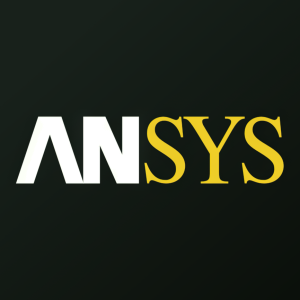Welcome to our dedicated page for Ansys news (Ticker: ANSS), a resource for investors and traders seeking the latest updates and insights on Ansys stock.
Ansys Inc. (NASDAQ: ANSS) delivers cutting-edge engineering simulation solutions powering innovation across aerospace, automotive, and semiconductor industries. This dedicated news hub provides investors and engineering professionals with essential updates on the company's strategic developments.
Track critical announcements including quarterly earnings, product launches for multiphysics simulation tools, and partnerships advancing digital twin technologies. Access verified information about Ansys' R&D initiatives in computational fluid dynamics (CFD) and cloud-based simulation platforms that shape industry standards.
Our curated collection features official press releases alongside analysis of major acquisitions and leadership updates. Stay informed about innovations in electric vehicle simulation systems and semiconductor design validation tools that demonstrate Ansys' technical leadership.
Bookmark this page for real-time updates on ANSYS's market-moving developments and in-depth coverage of how its simulation software enables next-generation engineering breakthroughs worldwide.
Ansys has announced the winners of its inaugural Art of Simulation competition, celebrating the company's 50th anniversary. The competition aimed to highlight innovative engineering solutions using Ansys' simulation software. Over 200 submissions were received, with more than 3,600 public votes across six categories: healthcare, structures, fluids, 3D design, electromagnetics, and multiphysics. Winning entries showcased projects such as kidney dialysis simulations and aircraft radar systems. Ansys emphasized the artistic aspect of engineering through visual representation of complex simulations.
Ansys (NASDAQ: ANSS) has partnered with XRby to advance the development of limited-edition luxury wristwatches using Ansys' SPEOS optical design simulation software. This collaboration aims to enhance the design efficiency and reduce production costs by eliminating the need for physical prototypes. XRby is creating high-end, customized watches that utilize expensive materials, affirming their commitment to sustainability and rapid innovation. The SPEOS software allows for real-world lighting simulations, drastically improving design decision-making and reducing development time.
Ansys has appointed Nicole Anasenes as Chief Financial Officer, set to transition from her current role as a board member on March 1, 2021. Anasenes brings extensive experience from her time at Squarespace, Infor, and IBM. Meanwhile, current CFO Maria Shields will take on the role of Senior Vice President of Administration. This leadership shift is aimed at enhancing Ansys's strategic direction and operational efficiency. CEO Ajei Gopal expressed confidence in Anasenes's ability to drive growth and innovation at the company.
Ansys has been included in FORTUNE's 2020 Future 50 list, recognizing its strong long-term growth potential. The selection process involved an analysis of over 1,000 publicly traded companies by FORTUNE and Boston Consulting Group. Ansys stands out for its clear strategy, commitment to sustainability, and robust investment in research and development. With a market value of $27 billion and 40% market share in engineering simulation, Ansys generated $1.5 billion in revenue in 2019. This accolade highlights Ansys's role in aiding innovation and enhancing product development.
LG Electronics is enhancing its engineering training through Ansys Learning Hub, an on-demand virtual learning portal. This collaboration aims to expedite product design and innovation by enabling engineers to master simulation software remotely during the COVID-19 pandemic. The hub offers 260 training courses, over 1,000 self-paced workshops, and 300 hours of lecture videos, facilitating continuous learning and skill development. According to LGE, this initiative marks a significant evolution in their product development processes, improving the speed and quality of their electronic consumer products.
ANSYS announced that executives will present virtually at two upcoming investor conferences. Maria Shields, CFO, will discuss at the RBC Capital Markets Technology Conference on November 18, 2020, at 1:20 p.m. ET. Ajei Gopal, President & CEO, will present at the Nasdaq 43rd Investor Conference on December 2, 2020, at 8:30 a.m. ET. A live audio webcast and archived presentations will be available on the company's website. Forward-looking statements regarding financial results and product development may be made during these events.
ANSYS reported strong Q3 2020 results with GAAP revenue of $367.0 million and non-GAAP revenue of $369.1 million, reflecting a 7% increase year-over-year. GAAP diluted EPS was $0.87 and non-GAAP diluted EPS was $1.36, down from $1.04 and $1.42 respectively in Q3 2019. Deferred revenue reached $879.9 million, up 35% year-over-year. The company announced a pending acquisition of Analytical Graphics, Inc. for $700 million, enhancing its capabilities in the aerospace and defense sector. FY 2020 guidance was also raised.
D2H Advanced Technologies and Ansys (NASDAQ: ANSS) have introduced an innovative automated simulation workflow that optimizes NASCAR race car development. This collaboration allows racing teams to enhance aerodynamics while significantly reducing reliance on costly wind tunnel tests, ultimately improving design efficiency and speed. The new workflow enables teams to triple the number of designs produced without additional time, addressing design issues more rapidly. This advancement promises increased production efficiency, potentially leading to better on-track performance and championships for NASCAR teams.
Ansys is partnering with Microsoft to enhance engineering simulation capabilities using public cloud high-performance computing (HPC) and digital twin solutions. This collaboration aims to increase productivity, reduce development costs, and expedite time to market in industries like industrial manufacturing and automotive.
The integration of Ansys' simulation solutions with Microsoft Azure is anticipated to optimize operations, enhance product maintenance, and enable large-scale autonomous vehicle simulations. The partnership is set to influence the way engineering challenges are approached, promising significant advancements in technology.
On October 27, 2020, Ansys announced certifications for its semiconductor design solutions with Samsung Foundry's FinFET process nodes. This includes the integration of Ansys RedHawk-SC aimed at designing efficient chips for markets like 5G, AI, HPC, automotive, and IoT.
The certification covers all FinFET nodes from 4nm to 14nm, focusing on power integrity and thermal analysis. This collaboration allows Samsung to optimize performance while reducing simulation time significantly. The partnership enhances the ability to meet advanced design requirements and reliability challenges in semiconductor applications.

